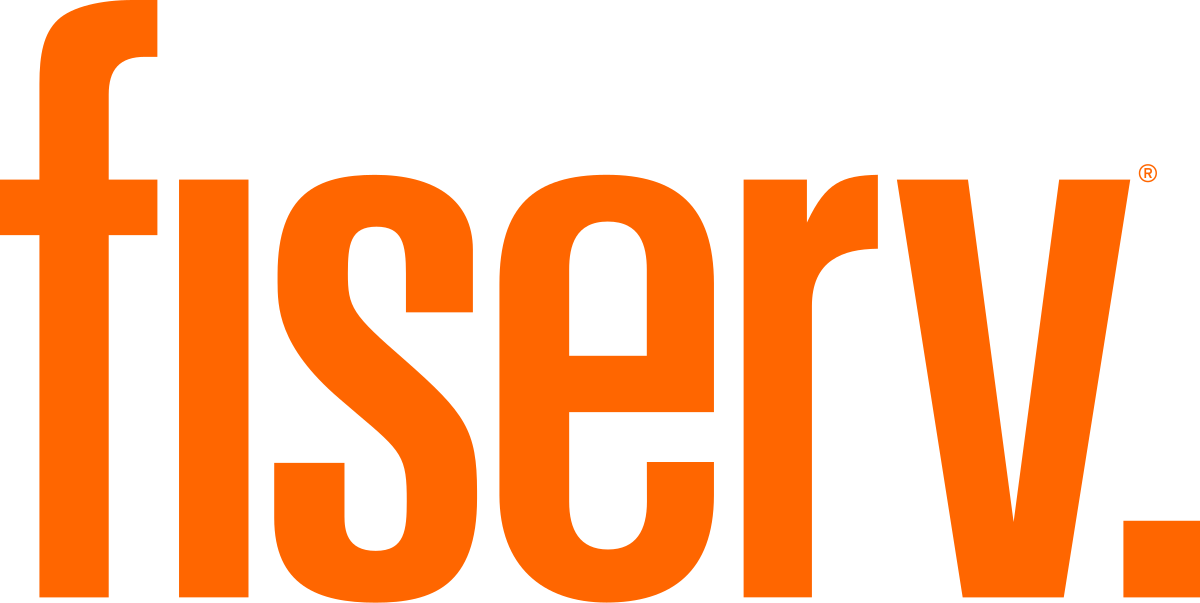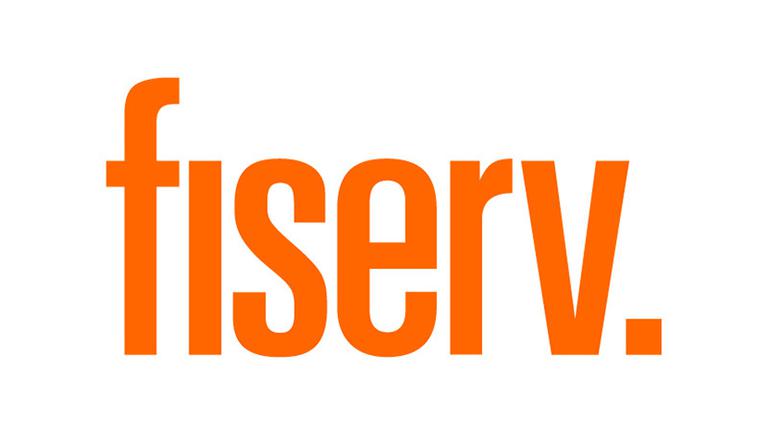Fiserv, Inc. (NYSE:FI) Maintains Strong Position in Fintech with New Blockchain Initiative

- Fiserv announces a blockchain-based digital asset platform featuring a U.S. dollar-pegged stablecoin, FIUSD, integrating with its existing infrastructure.
- Bank of America Securities maintains a "Buy" rating for NYSE:FI, with the stock priced at $172.33.
- The company's market capitalization stands at approximately $95.55 billion, highlighting its significant presence in the financial services sector.
Fiserv, Inc. (NYSE:FI) is a global provider of financial services technology, offering solutions in payments, processing services, risk management, and more. The company is a significant player in the fintech industry, competing with firms like PayPal and Square. On June 29, 2025, Bank of America Securities maintained its "Buy" rating for FI, with a "hold" action, when the stock was priced at $172.33.
Fiserv's recent announcement of a blockchain-based digital asset platform featuring a U.S. dollar-pegged stablecoin, FIUSD, marks a strategic move. This platform will integrate with Fiserv's existing infrastructure, allowing financial institutions to adopt stablecoin payments without additional costs. This positions Fiserv as a leader in the digital dollar race, as highlighted by the increasing interest in stablecoin solutions.
Currently, FI's stock is priced at $172.33, reflecting a $0.97 increase, or 0.57%, for the day. The stock has traded between $170.68 and $173.50 during the day. Over the past year, FI's stock has seen a high of $238.59 and a low of $146.46, indicating some volatility in its performance.
Fiserv's market capitalization stands at approximately $95.55 billion, with a trading volume of 2,163,351 shares. This substantial market cap underscores the company's significant presence in the financial services sector. The stablecoin initiative could further enhance Fiserv's market position, attracting more investors and financial institutions to its platform.
| Symbol | Price | %chg |
|---|---|---|
| DCII.JK | 260550 | 0 |
| MLPT.JK | 80100 | 0.41 |
| WIFI.JK | 3330 | 2.1 |
| 018260.KS | 173000 | -2.77 |

Fiserv Downgraded by William Blair Amid Financial Challenges
- William Blair downgraded Fiserv (NYSE:FI) to "Market Perform" due to its underwhelming third-quarter financial results.
- Fiserv's earnings per share (EPS) and revenue fell short of expectations, leading to a revised full-year 2025 guidance.
- Despite the challenges, Fiserv's net income showed improvement, and the company has launched the "One Fiserv" action plan to enhance client focus.
On October 29, 2025, William Blair downgraded Fiserv (NYSE:FI) to a "Market Perform" rating from its previous "Outperform" status. At the time, FI was priced at $76.55. This downgrade came amid a turbulent period for Fiserv, a company known for providing financial services technology solutions. Competitors in this space include companies like Fidelity National Information Services and Global Payments.
Fiserv's shares have seen a dramatic decline, plummeting nearly 45% after the release of its third-quarter 2025 financial results. The company reported earnings per share (EPS) of $2.04, which was significantly below the anticipated $2.65. This shortfall in earnings has contributed to the downgrade by William Blair, as highlighted by TheFly.
The company's revenue for the quarter was $4.92 billion, missing the forecasted $5.36 billion. This revenue miss has led Fiserv to revise its full-year 2025 guidance. The company now projects adjusted EPS between $8.50 and $8.60, down from the expected $10.07. Additionally, Fiserv has adjusted its organic revenue growth forecast to 3.5% to 4%, a significant reduction from the previous estimate of approximately 10%.
In response to these challenges, Fiserv has introduced the "One Fiserv" action plan. This initiative aims to enhance client focus and capitalize on the company's strengths. Despite the disappointing performance, Fiserv's net income rose to $792 million from $564 million in the same period last year, indicating some positive aspects amidst the challenges.
The stock's current price on the NYSE is $75.98, reflecting a significant decrease of -$50.19, or -39.78%. The stock has fluctuated between a low of $66.58 and a high of $76.64 today. Over the past year, FI reached a high of $238.59 and a low of $66.58. The market capitalization stands at approximately $41.3 billion, with a trading volume of 63.6 million shares.

Exploring the Investment Potential of Fiserv, Inc on the NYSE (NYSE: FI)
- FI has experienced a monthly gain of 0.95%, despite a recent 10-day loss of -1.30%, indicating a potential entry point for investors.
- The stock shows a promising growth potential with a projected increase of 61.37%.
- A high Piotroski Score of 8 highlights FI's strong financial health and stability.
Fiserv (FI) is a stock that has captured the attention of investors with its promising performance and potential for growth. Over the past month, FI has experienced a monthly gain of 0.95%, despite a recent 10-day loss of -1.30%. This fluctuation in price may offer a strategic entry point for investors looking to capitalize on its growth trajectory.
The stock's growth potential is particularly noteworthy, with a projected increase of 61.37%. This suggests that FI could see significant appreciation from its current levels, making it an attractive option for those focused on growth. Investors may find this potential for appreciation appealing, especially in a market where growth opportunities are highly sought after.
FI's financial health is underscored by its Piotroski Score of 8. This score indicates strong financial performance, assessing factors such as profitability, leverage, liquidity, and operating efficiency. A high Piotroski Score like this suggests that FI is well-managed and financially stable, which can be reassuring for investors.
The target price for FI is set at $275, reflecting confidence in the stock's ability to capitalize on its current market position. This target aligns with the stock's growth potential, suggesting that FI has room to expand further. Investors may view this target as a benchmark for the stock's future performance.
Overall, FI presents a compelling case for investment, with strong fundamentals and significant upside potential. The recent dip in price could be a strategic entry point for investors looking to benefit from its growth trajectory. With a high Piotroski Score and a substantial target price, FI is well-positioned for future success.

Monness Downgrades Fiserv to Sell: Clover’s Growth Outlook Called Into Question
Monness, Crespi, Hardt shifted its stance on Fiserv (NYSE:FI), downgrading the stock from Neutral to Sell and assigning a $145 price target. The downgrade comes amid rising skepticism over the company’s ability to deliver on ambitious growth projections, particularly tied to its Clover merchant platform.
According to the firm, achieving the company’s 2026–2027 growth targets would require aggressive expansion and upselling in Clover’s restaurant and retail segments—efforts that may prove difficult without offering pricing concessions. Weaker performance signals are already emerging from Fiserv’s SMB index, with noticeable softening in categories central to Clover’s success.
While Fiserv’s balance sheet remains strong, with manageable debt maturities and solid free cash flow, Monness sees these fundamentals as insufficient to offset concerns around weakening transaction trends and constrained value-added service (VAS) penetration. The firm believes the current stock price still embeds overly optimistic assumptions about Clover’s trajectory, including expectations for international growth and deepening product cross-sell opportunities.
As such, the risk that Fiserv will need to walk back its bullish guidance is rising, prompting the downgrade and a more cautious outlook on the stock moving forward.

Monness Downgrades Fiserv to Sell: Clover’s Growth Outlook Called Into Question
Monness, Crespi, Hardt shifted its stance on Fiserv (NYSE:FI), downgrading the stock from Neutral to Sell and assigning a $145 price target. The downgrade comes amid rising skepticism over the company’s ability to deliver on ambitious growth projections, particularly tied to its Clover merchant platform.
According to the firm, achieving the company’s 2026–2027 growth targets would require aggressive expansion and upselling in Clover’s restaurant and retail segments—efforts that may prove difficult without offering pricing concessions. Weaker performance signals are already emerging from Fiserv’s SMB index, with noticeable softening in categories central to Clover’s success.
While Fiserv’s balance sheet remains strong, with manageable debt maturities and solid free cash flow, Monness sees these fundamentals as insufficient to offset concerns around weakening transaction trends and constrained value-added service (VAS) penetration. The firm believes the current stock price still embeds overly optimistic assumptions about Clover’s trajectory, including expectations for international growth and deepening product cross-sell opportunities.
As such, the risk that Fiserv will need to walk back its bullish guidance is rising, prompting the downgrade and a more cautious outlook on the stock moving forward.

BMO Capital Raises Fiserv Price Target on Optimistic Growth Potential
BMO Capital analysts raised their price target for Fiserv (NYSE:FI) to $232, up from $222, while reiterating an Outperform rating. The adjustment reflects potential upside in revenue estimates and justified valuation expansion amid ongoing fintech sector momentum.
While Fiserv shares have already risen 58% year-to-date, the analysts identified areas where expectations may still be conservative, particularly within the Merchant Solutions segment. The company’s Clover and Carat platforms are positioned to meet or exceed targets, leaving room for consensus revenue estimates to rise in the coming quarters. Furthermore, easing macroeconomic headwinds in Latin America could provide an additional boost to growth.
The new price target, rolled forward a quarter, implies a valuation of approximately 19 times two-year forward rolling price-to-earnings, highlighting confidence in Fiserv’s ability to sustain its growth trajectory and capitalize on favorable industry trends.

BMO Capital Raises Fiserv Price Target on Optimistic Growth Potential
BMO Capital analysts raised their price target for Fiserv (NYSE:FI) to $232, up from $222, while reiterating an Outperform rating. The adjustment reflects potential upside in revenue estimates and justified valuation expansion amid ongoing fintech sector momentum.
While Fiserv shares have already risen 58% year-to-date, the analysts identified areas where expectations may still be conservative, particularly within the Merchant Solutions segment. The company’s Clover and Carat platforms are positioned to meet or exceed targets, leaving room for consensus revenue estimates to rise in the coming quarters. Furthermore, easing macroeconomic headwinds in Latin America could provide an additional boost to growth.
The new price target, rolled forward a quarter, implies a valuation of approximately 19 times two-year forward rolling price-to-earnings, highlighting confidence in Fiserv’s ability to sustain its growth trajectory and capitalize on favorable industry trends.







